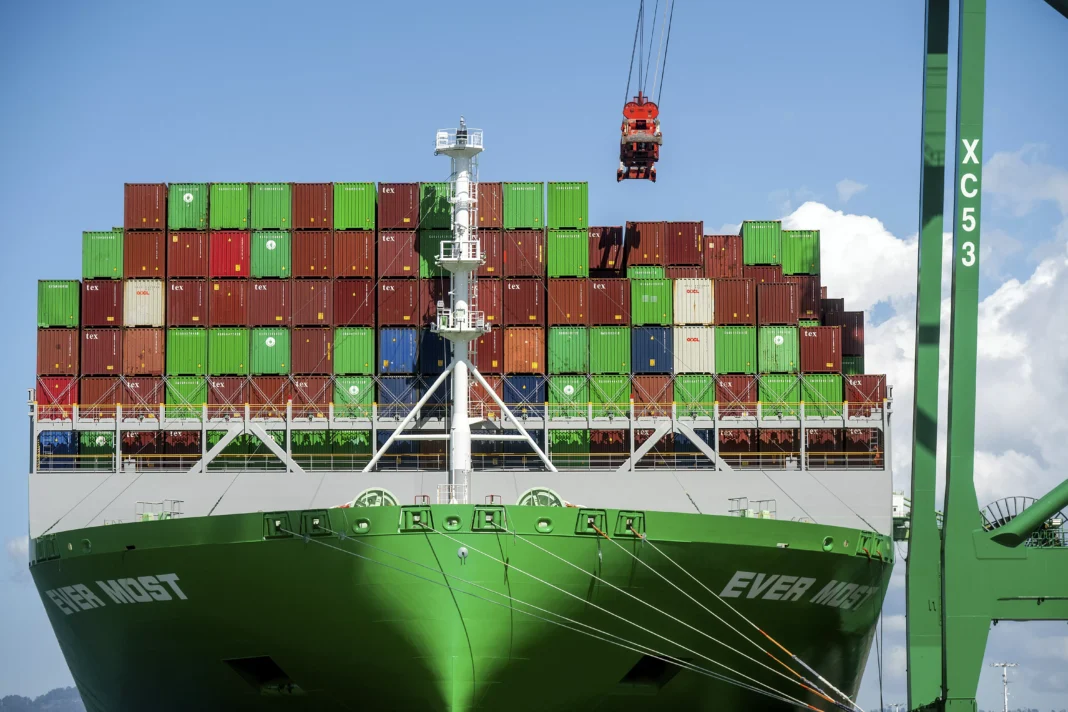Many of the world’s largest shipping nations are taking a significant step in the fight against climate change by considering a tax on carbon emissions from ships. This decision, which will be made on Friday, has the potential to reduce the global shipping industry’s impact on the environment and pave the way for a more sustainable future.
Shipping is a vital component of the global economy, responsible for transporting 90% of the world’s goods. However, it also has a significant impact on the environment, accounting for around 2.5% of global carbon emissions. With the shipping industry predicted to grow by up to 250% by 2050, it is essential to take action now to mitigate its environmental impact.
The International Maritime Organization (IMO), the UN body responsible for regulating the shipping industry, will be meeting on Friday to discuss and potentially adopt a carbon tax on ships. This proposal has been put forward by a group of 14 countries, including France, Germany, and the United Kingdom, and is supported by several major shipping companies and environmental organizations.
The tax would work by placing a price on carbon emissions from ships, similar to the mechanism already in place for other industries. This means that shipping companies would have to pay for the carbon they emit into the atmosphere, creating an incentive for them to reduce their emissions and invest in more environmentally friendly practices.
There are several benefits to implementing a carbon tax on ships. Firstly, it would significantly reduce the industry’s contribution to global carbon emissions. With the shipping industry responsible for such a large percentage of emissions, this could have a significant impact on overall global emissions and help to meet the goals of the Paris Climate Agreement.
Additionally, the tax would encourage shipping companies to invest in new technologies and practices to reduce their carbon footprint. This could include using cleaner fuels, improving energy efficiency, and investing in renewable energy sources. These advancements would not only benefit the environment but also lead to long-term cost savings for the shipping industry.
Furthermore, the tax would also level the playing field for shipping companies. Currently, companies that invest in more environmentally friendly practices often face higher costs, putting them at a disadvantage compared to those who continue to use cheaper, more polluting methods. With a carbon tax in place, all companies would be held to the same standard, creating fair competition and driving innovation within the industry.
Of course, there are concerns about the potential impact of a carbon tax on the shipping industry, especially for developing countries that rely heavily on shipping for their economies. However, the proposal includes measures to address these concerns, such as revenue-sharing mechanisms and assistance for companies to transition to cleaner practices.
Moreover, the tax would also create a new revenue stream that could be used to fund research and development of more sustainable shipping practices and support developing countries in their transition to cleaner shipping.
It is worth noting that this proposal is just the beginning, and there is still much work to be done in terms of implementation and enforcement. However, the fact that major shipping nations are considering and discussing such a significant step towards reducing carbon emissions from ships is a significant achievement.
The shipping industry has long been seen as a difficult sector to regulate and decarbonize due to its global nature and the complexity of its operations. However, the potential adoption of a carbon tax on ships is a clear indication that countries are committed to addressing the industry’s impact on the environment and taking steps towards a more sustainable future.
In conclusion, the proposal to impose a carbon tax on ships is a crucial step in the right direction towards reducing the shipping industry’s carbon footprint. It has the potential to significantly reduce global emissions, drive innovation, and create fair competition within the industry. Let us hope that the decision made on Friday will be a positive one and will pave the way for a cleaner and more sustainable shipping industry for generations to come.



